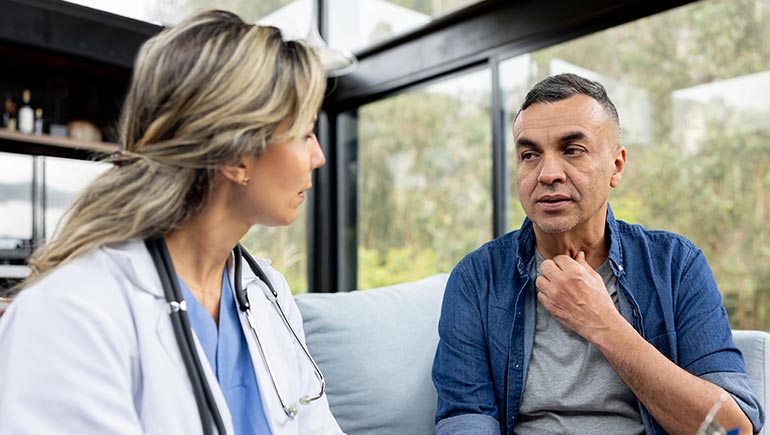
Q: Can you discuss the Crohn’s & Colitis Foundation’s goals/mission, both every day and on World IBD Day specifically?
A: The Crohn’s & Colitis Foundation’s mission is to find cures for Crohn’s disease and ulcerative colitis, and to improve the quality of life for the children and adults living with these diseases. We work to accomplish our mission by inspiring and engaging patients and caregivers in the country’s largest IBD community and helping to dramatically accelerate the pace of research by breaking down traditional barriers to patients, data, funding and collaborations. We also provide extensive educational resources for patients and their families, medical professionals and the public.
Raising awareness of IBD is critical to accomplishing our mission, and it’s something we tackle every day and emphasize on awareness observances, like World IBD Day. In the United States, approximately 3 million Americans live with IBD, yet understanding and public recognition of these diseases is limited. We work to educate the public in hopes that we can change public perception about the serious nature of these invisible illnesses and help patients feel supported in their disease journey. We also strive to reach those who may be living with symptoms that they were ignoring and educate them so that they seek medical advice and early diagnosis to help improve future health outcomes.
Q: What are some common struggles IBD patients live with that the Foundation aims to bring awareness to on World IBD Day?
A: There is a general perception that Crohn’s disease and ulcerative colitis are bathroom diseases. While the disease does, to an extent, involve the bathroom (urgency, diarrhea and constipation are symptoms), many patients experience disease symptoms throughout their body. In fact, it is estimated that 25-40 percent of IBD patients experience manifestations of their disease outside of the GI tract, commonly occurring in the skin, joints, eyes, bones, liver and kidneys.
Another issue that many patients struggle with is the fact many symptoms related to Crohn’s and colitis are “invisible,” and because of this, many patients don’t “look sick.” The lack of physical signs of these diseases can cause others to speculate as to whether the patient really has something serious. This often undermines what patients experience and further stigmatizes these diseases.
We seek to combat these falsehoods through our awareness raising activities on World IBD Day and also year-round. By encouraging patients to share their personal stories – the good, the bad and the ugly – and educating the public about Crohn’s and colitis, we are helping to raise the visibility of these invisible, debilitating diseases.
Q: How can partner organizations like Bristol Myers Squibb continue to support the Foundation? How can they continue to support patients?
A: Patient stories are one of the most powerful tools available, so we encourage all of our partner organizations to listen to these stories and to keep them in mind throughout all the work they do – whether it’s in research, advocacy, education or beyond. Keeping patients and their needs front and center is essential to ensure that we are providing them with the support necessary throughout their disease journey.
Q: What can we expect from the Foundation when it comes to the future of helping IBD patients manage their disease?
A: The Foundation will continue expanding its research, education, support and advocacy initiatives to help us move closer to our vision of a future free from Crohn’s and colitis.
We have a number of exciting projects coming up. First of all, we will be launching new and expanded resources to help patients build resiliency and better manage the psychosocial impact of their disease, and will be working to empower patients to be active members of their care team through our shared decision-making tools. We will also continue our efforts to improve patient care through the expansion of IBD Qorus, our quality of care initiative, and also strive towards novel and innovate technologies and tools that will improve disease prediction and management.
Q: What is the most important message for the patient community, this World IBD Day?
A: First, your story is the most powerful tool you have. We encourage patients and caregivers to share their IBD story on World IBD Day to help show what it’s like to live with IBD and make the invisible aspects of these diseases visible.
Second, you are not alone! The IBD community is large and finding people who can relate to you and support you through your disease journey is important. We encourage patients to find people who will be there for them through the good and the bad to help them cope with their disease.




